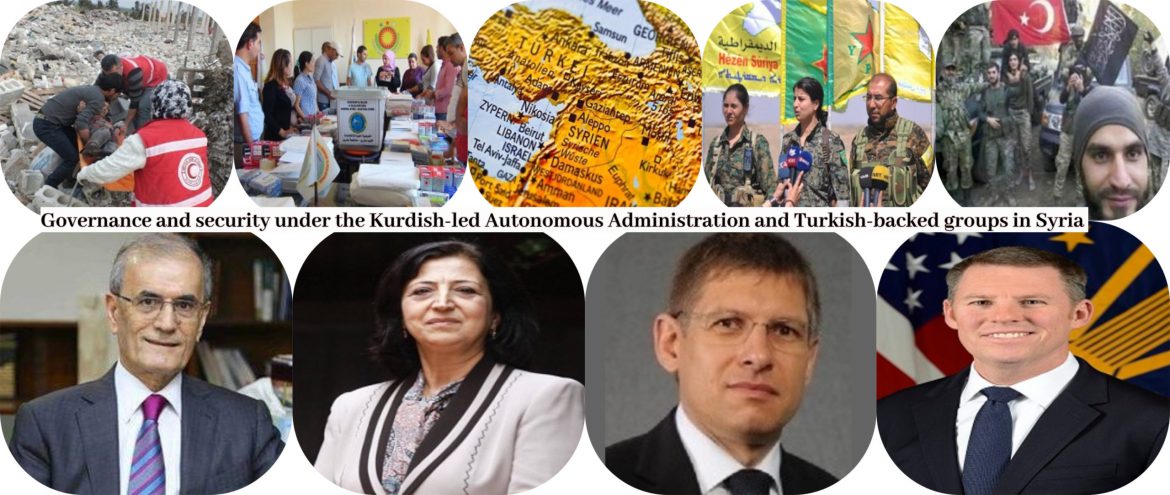Washington Kurdish Institute
Updated:
Decades of atrocities by the Syrian regime led to an uprising against Syria’s dictatorship with the aim of effecting change and building a better future. Today, nine years after this uprising began, various extremist groups who hijacked the revolution control about 12% of Syria along with the Turkish military, while the Syrian regime, with the help of Russia and Iranian-backed groups, remains in power and controls over 60% of the country’s territory. Additionally, despite two large scale Turkish military invasions, the Kurdish-led Autonomous Administration of North and East Syria (AANES) govern about 25% of Syrian land.
This panel discussed the security, economy, and politics of the both areas under the AANES and those controlled by Turkish-backed groups in Syria, the recent fighting among the Turkish-backed groups in Afrin, and the future of the US-backed Syrian Democratic Forces (SDF) in fighting the extremist groups such as ISIS (Da’esh). Furthermore, the speakers will provide recommendations to the US government on Syria policy.
Date: Thursday, June 11, 2020 @ 11:00am EST
Location: Online via Zoom
Speakers:
Najmaldin Karim: President of the Washington Kurdish Institute (WKI)
Michael Mulroy: Former United States Deputy Assistant Secretary of Defense & Senior Fellow at the Middle East Institute
Sinam Mohammed: Representative of the Syrian Democratic Council to the United States (SDC)
Fabrice Balanche- Professor at Lyon University & Adjunct Fellow to the Washington Institute for Near East Policy (WINEP)
About the speakers:
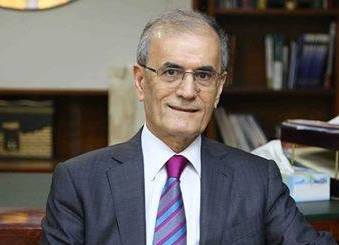
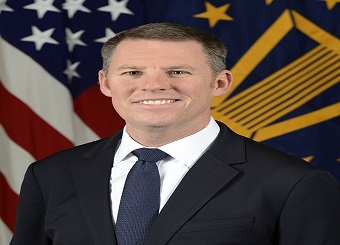
Mulroy is a former United States Deputy Assistant Secretary of Defense (DASD) for the Middle East (Nov. 2017-Dec. 2019). As DASD for the Middle East, he was responsible for U.S. Department of Defense policy for Bahrain, Egypt, Israel, Iran, Iraq, Jordan, Kuwait, Lebanon, Oman, Palestine, Qatar, Saudi Arabia, Syria, United Arab Emirates and Yemen. He is a retired Central Intelligence Agency Paramilitary Operations Officer and United States Marine. In addition, he is a member of the Board of Directors for Grassroots Reconciliation Group, a nonprofit to help rehabilitate child soldiers. Read more
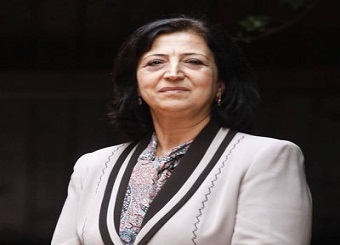
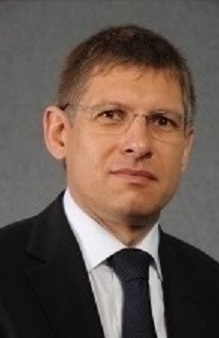
He spent ten years in Lebanon and Syria, his main areas of study, since first engaging in fieldwork in the region in 1990. He was one of the first academics and observers who accurately predicted the evolution of the Syrian crisis, thanks to his deep knowledge of the Syrian society and his method of analysis. Fabrice Balanche tries to understand political power by studying territory through a multidisciplinary approach that combines quantitative and qualitative methods, GIS, and direct field surveys. Mapping is an important part of his research.
His publications include Geopolitics of the Middle East (2014, in French), Atlas of the Near East (2012, in English, French, and Arabic), the book version of his thesis, The Alawite Region and Syrian Power (2006, in French), and many articles on Syria and Middle East. His next book, Sectarianism in the Syrian Civil War (in English), will be published in fall 2017.
Najmaldin Karim
“The Kurds have no choice, whether it’s in Iraqi Kurdistan or couldn’t or in Syria, they have to be together. Our enemies always get together whenever they see any opportunity for the Kurds to get to their rights.”
“What we need to do is, the partnership between the SDF and the United States and the coalition forces, should stay and should be strengthened. I think Erdogan streaks to be recognized for what it’s worth, including his illusion about the SDF being involved in the Black Lives Matter and the demonstrations there. One thing I like to make a comment about, PKK [Kurdistan Workers Party] has also always been used as a villain in all of this, because that’s what Turkey wants. I think the United States and the European union has to revise their policy. We removed the Mujahedin of Iran from the terrorist list when they actually killed Americans in the 1970s and 1980s. The PKK has never attacked America, has never hurt one American. The PKK has been fighting for the rights of the Kurds. They have changed their policies from independence to basically human and cultural rights for the Kurds. I think it’s about time and if this is changed, I think it will help for the US and Europeans to have more leverage on them. Also work with Turkey, trying to solve the Kurdish issue in Turkey. That is the only way you can solve the problems between Turkey and Syria, between Turkey and Iraqi Kurdistan and the whole thing.”
Michael Mulroy
“The decision to precipitously withdraw from Iraq has had consequences. It led as most think, myself included, to the rise of the physical caliphate of ISIS. It was something that we all had to deal with. And as somebody who has been responsible for these types of operations, I can say that there was really no alternative, and there was no better partner than our Kurdish partners in the YPG [Peoples’ Defense Units] which eventually became the SDF [Syrian Democratic Forces].”
“[The SDF] were the best partners in their capability and willingness. And quite frankly, if you don’t have both of those two aspects, you don’t really have a partner. I think they shared their willingness, as example by the 12,000 somewhat fighters they lost in this fight and their capability obviously really something to admire.”
“One thing that I like to point out is the national defense strategy developed under Secretary Mattis, which is still obviously our strategy in the defense department. One of the key pillars is building and maintaining partnerships. Again, I think this was a model. I think if we can’t get this right, speaking as an American, then we’re going to have a very difficult time in the future developing partners that find us reliable. “
“I would like to say that one of the strongest pillars of the US- Kurdish relationship is the relationships that have been built in the last 20 years, especially, in the military and the CIA, and that’s something that money can’t buy. So I think that is going to carry through in the future, and it’s going to really benefit people. I would like to reiterate that I do think that the SDF was a model and quite frankly, dealing with an effective tool in fighting ISIS and the United States should maintain its presence there and maintain its partnership. If anything, maybe double down on the stabilization efforts in the region.”
Fabrice Balanche
“We know that the goal of Turkey is to create an Arab belt in Northern Syria from Idlib to the east. And for that Turkey is using different tools: military we have seen in Afrin, Tal Abyad, and Ras Ain. And we have seen that the Turkish proxies expelling the Kurdish population. And also the people suspected to be close to the self-administration in Tal Abyad they arrested a famous Shiekh last month and the goal of Turkey is to send Syrian refugees to sit there in this area. But it’s not the Syrian refugees who are in Turkey they are going to send but they prefer to use the Syrian IDPs [Internally Displaced People] living in Idlib or al Bab area”
“There is no Kurdish people in Tal Abyad and Ras al Ain but still in Afrin who leave under Islamist militia occupation. And the ultimate goal of course, is to expel them from what we can call white ethnic cleansing. It’s not an Anfal like in Iraq by a crime by harassment, as Sadam did in Northern Iraq.”
“The direct consequence of the Caesaract is the devaluation of the Syrian pound. We saw last week that the Syrian pound is going down because people are anticipating it. Also sancantion with the Caesar act and because in northeastern Syria people are using the Syrian pound, I think it is a problem. I hope that the self administration could control the prices because in the Syrian regime’s areas, there is no more control of the prices.”
“I think that today everything seems to be in stand in north and east of Syria probably because of the virus, but be careful because it’s as a peace before the storm. We know that Idlib and Northeastern are linked. Since 2016, we have a bargain agreement between Turkey and Russia. ‘I give you a path of Idlib. You give me part of the Kurdish territory, or you let me do what I want to do in eastern Syria.”
Sinam Mohamed
“The administration in the North and North East Syria has been established to avoid the chaos, the mess, which was in all of the region in Syria. We know there is a diversity ethnic diversity, religious diversity. So in our region, in the north and east of Syria all these components together, like, Arabs, Kurds, Christians, Syriac, Turkmen, and Armenians all come together to administer and manage these areas together. Working to promote the real democracy which was not found before during the Assad period.”
Post ISIS, we have another challenge, which is the ISIS detainees and the ISIS fighters who were arrested or captured there in the prisons. The foreigner fighters, who are now about thousands of them. They are foreign fighters not from Syria. And as well as the others, the families of ISIS who are now in the camp of al Hawl. They are another threat or another challenge for the administration. So who is responsible for all these dangerous fighters in the prisons and these dangerous families as well in the camp? it is the administration. So the administration is having a very heavy burden in order to protect the region from all this.”
“About 300,000 have been displaced from Afrin [by Turkey] and the others who stay there are under the threat of kidnapping and killings.”
“[In Afrin] Yazidis are forced to be muslims and turn their house to be mosques.”
“Even the church. The only church was in Afrin, they looted and the Christian people fled away.”
“I would like to say that the model of the administration, which survived till now should be strengthened, should be supported to have the stability in the region to be at the table of the negotiation[ Geneva]”

